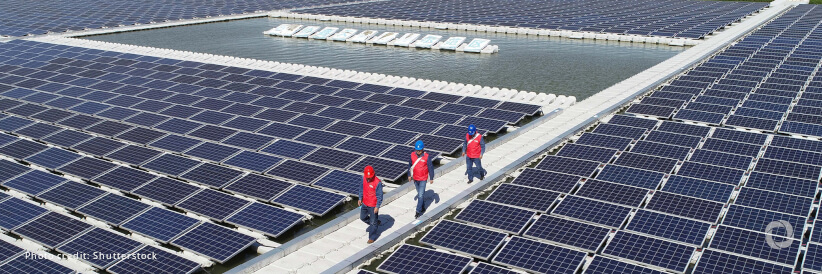One of the main takeaways of UNCTAD’s Technology and Innovation Report 2023 is that national governments and the international community must act now to avoid leaving developing countries out of the green technological revolution that is quickly unfolding. Green technologies are those related to the production of goods and services with lower carbon footprints.
UNCTAD is at the beginning of a green technological wave in which early adopters of new technologies can rapidly move ahead and create lasting advantages in related economic sectors. Therefore favorable conditions to catch up technologically and economically are available only for a short time.
Countries that miss these early stages, on the other hand, will face gaps that are hard to close later. To avoid that, national governments and the international community must take decisive action soon. Not being part of the green technological revolution would mean missing opportunities in a market expected to grow fast in the coming years.
Green frontier technologies alone are expected to have a fourfold increase compared to what they are valued today, reaching a market size of up to $2.1 trillion in 2030. The overall market for frontier technologies is projected to become far larger, reaching $9.5 trillion by the end of the decade.
Green tech gap between countries
The markets of green technologies have been expanding at unequal rates throughout the world, with disadvantages for developing countries. One example is the exports of green technologies related to renewables and electric vehicles. Between 2018 and 2021, developing countries’ exports grew by about 32% only, from $57 billion to $75 billion, while those of developed economies more than doubled, from $60 billion to $156 billion.
Worryingly, developing countries lag in more than trade. They hardly feature in the list of top suppliers of frontier technologies and sources of patents and publications. Except for China. Most top suppliers are firms from the United States, a few other developed countries, and China. Also, China and the United States dominate knowledge creation, accounting for about 30% of global publications and almost 70% of patents.
This green tech gap is captured in UNCTAD’s frontier technology readiness index, which combines ICT, skills, research and development, industrial capacity, and financial indicators to measure the preparedness of countries to use, adopt and adapt frontier technologies.
The 2023 ranking, which encompasses 166 economies, shows the risk that developing countries are facing. Only developed economies feature among the most prepared economies, while countries in Latin America, the Caribbean, and sub-Saharan Africa have the lowest readiness levels.
Developing countries can catch up
But some developing countries have achieved significant advances. Between 2010 and 2020, for example, the installed capacity of bioenergy, solar, and wind power increased in middle and low-income countries, now responsible for over 50% of total installed capacity.
Considering the energy capacity potential that many developing countries have for renewables, they can make further gains by implementing supportive policies that also promote economic development and the creation of jobs. UNCTAD’s Technology and Innovation Report 2023 shows multiple examples of countries investing in these sectors, like Brazil, Chile, and Namibia, which are implementing initiatives to develop green hydrogen.
Every case of technological catch-up shown in the report highlights the importance of implementing proactive and strong governmental efforts. Overall, policies should be mission-oriented, going beyond fixing market failures. Coordination is key, especially regarding energy transition, as sustainable development is a cross-cutting issue that involves several governmental sectors. Environmental and industrial policies must be aligned.
National governments should proactively incentivize green sectors and innovation to diversify their economies and move towards more complex products that are also greener.
International cooperation is critical
But developing countries cannot succeed alone. They need the support of the international community and an enabling global framework. Trade rules should not hamper the protection of infant green industries through tariffs, subsidies, and public procurement, which are important to allow these nascent industries to achieve economies of scale that make exports more competitive.
In addition, intellectual property rights regulations should be flexible enough to facilitate the upgrading of productive capabilities in key green industries. The international community needs to improve the consistency between trade and intellectual property rights agreements and global climate accords.
UNCTAD’s Technology and Innovation Report 2023 proposes innovative solutions to improve the support of the international community for sustainable development. These include an international program of guaranteed purchase of tradable green items, a more cooperative approach to green innovations based on multilateralism and open innovation, and a multilateral fund financed by international organizations, and donors philanthropists to stimulate green innovations.
Also, the UN Commission on Science and Technology for Development offers member states a platform to discuss these proposals and explore ways of strengthening and better coordinating international cooperation in science, technology, and innovation, in the spirit of multilateralism, to harness green technologies and innovation for the benefit of all.

